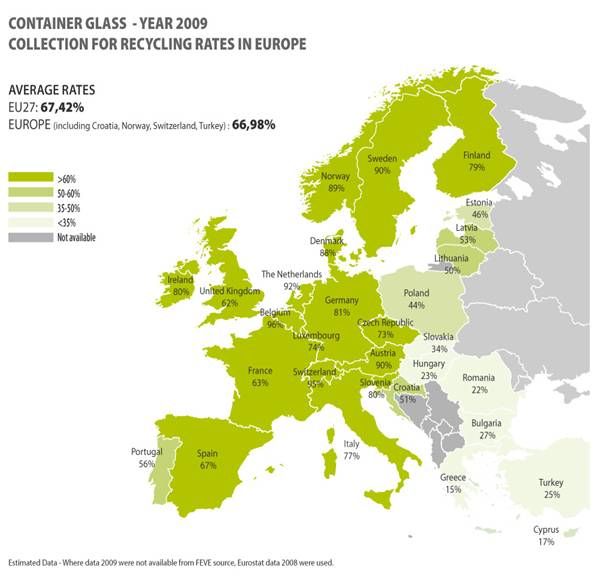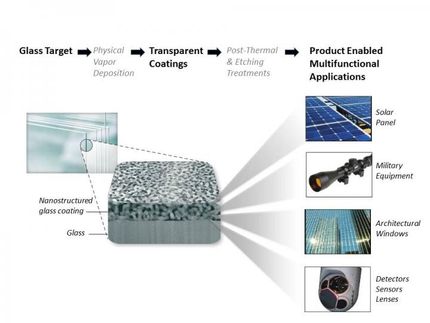Glass recycling increases again in europe
Advertisement
According to the latest glass recycling estimates – published one year ahead of the official Eurostat data - more than 67% of glass bottles and jars were collected for recycling in the European Union in 2009. The figures released by FEVE, the EU Container Glass Federation, translate into about 11 million tonnes or 25 billion glass bottles and jars being collected throughout the European Union, confirming the steady and positive trend of the last years (66% in 2008).

FEVE
“Glass recycling increases each year thanks to the commitment of consumers everywhere. Our industry is able to turn this waste into a valuable resource to make new bottles and jars because glass by nature is 100% recycleable - says Niall Wall, President of FEVE – the European Container Glass Federation.
Recycling glass avoids the use of virgin raw materials, reduces energy consumption and greenhouse gas emissions. Glass recycling contributes to creating and securing economic growth and local employment in Europe because glass is locally collected, locally recycled and locally produced.
The act of recycling means that glass producers can make use of the same materials over and over again. This characteristic of glass puts the material at the centre stage in the ambitious strategy of the European Commission to make the European Union a ‘circular economy’ where recycling is the key factor to waste reduction and where waste is considered as a valuable resource .
“I believe strongly in moves to make Europe more resource efficient”, comments Linda McAvan – Member of the European Parliament for Yorkshire and the Humber. “EU Directives set out a requirement to increase recycling rates as they will help to reduce demand for primary raw materials, to reuse valuable materials which would otherwise end up as waste, and to reduce energy consumption. This is fundamental to build a solid resource efficient economy”.
These goals can be met only where materials can be reused in valuable schemes or can be actually recycled in closed loop systems - like the glass bottle ones – which are gold standards in the matter. Materials that are down cycled for another use than for the original one are ejected from the closed loop system and are often ultimately generating waste destined for incineration or landfill.ere not available from FEVE sources, 2008 Eurostat data were used.




























































